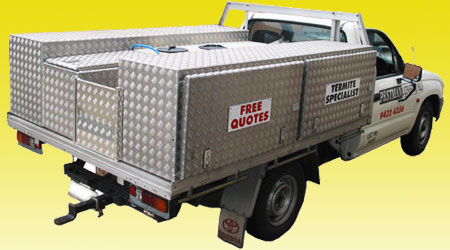A common claim is “best quality, cheapest price.” This should really be the question, “best quality, or cheapest price?”
Ute Safe strives for the best quality and sometimes that means we can not offer the cheapest price. We have chosen the quality side of the fence and the grass really is greener over here.
We only get one chance to sell you a box and we want to sell you the only box you will ever need. It’s not like milk or bread, you don’t expect to need another one tomorrow. If you get a shoddy product you will never come back and if we do a great job you never need to come back.
The following outlines some of the design elements we set to meet and do not compromise on for the sake of offering a cheaper product.
Aluminium Alloy – 5052 or 3003?
Aluminium alloy is a mixture of different metals, mostly aluminium, but may also include anything from silicon to titanium. Together these form the characteristics of strength, hardness, ductility, and toughness.
3003 is architectural alloy.
3003 alloy is a bit cheaper to produce because of the recovered component content and the use of manganese instead of magnesium. These two metals may sound similar but they create a very different finished product. This softer material is easier to work and cheaper on tooling.
3003 is a great material for gutters, cladding, and shop fitting extrusions. It starts out at under half the hardness of 5052 alloy. All propeller, diamond plate, and a lot of 5 bar tread plate boxes are now made from 3003 alloy.
5052 is marine grade aluminium alloy.
Marine grade alloy is great for hard wearing outdoor applications. 5052 alloy contains a significant magnesium component. It becomes harder with age as well as work hardening. For applications exposed to hard knocks or an abrasive or marine environment 5052 alloy is a superior product that will outlast 3003 alloy.
Ute Safe is the only company able to boast that every single box manufactured has been made from 5052 marine grade alloy.
Hinges – Concealed or Exposed?
Security is important. Protecting the contents is the main reason for purchasing a new box. It doesn’t matter how good the latches are if the hinge pin is exposed. Many boxes use piano or butt hinges; a pair of pliers, a nail, and maybe a file are the only tools required to gain entry to these types of boxes. Meaning that if your box has these hinges it is not really a safe storage option.
The interlocking case and door design incorporating a concealed brass hinge case and 6mm stainless steel pin is a feature of every Ute Safe box.
Ute Safe only uses concealed hinges because security is important.
Box Construction – T.I.G Weld, Pop Rivet, Spot Weld, or M.I.G Weld?
Pop riveted and spot welded construction are used on light gauge material and no box constructed like this is suitable for an external work box. Even with sealant to protect seam leaks, any impact to the box will result in a separation of case panels and the box will leak. The door will leak. If you put this box into the shed and out of the weather, it will last a long time and be a very useful storage box.
M.I.G (metal inert gas) welding a box is not the problem, but the operators using the M.I.G welding plant can be. M.I.G welding is considered easier and many people who should not be allowed to weld are given an opportunity to do so. A M.I.G welded box doesn’t need to be badly welded, but many are let down by missed welds, spatter, shard pieces of wire sticking out of the weld, lumpy or messy welds, black marks, and “aero bar” porosity.
T.I.G (tungsten inert gas) welding requires a highly skilled craftsman and produces the cleanest and neatest welds. Smooth, strong, and spatter free!
